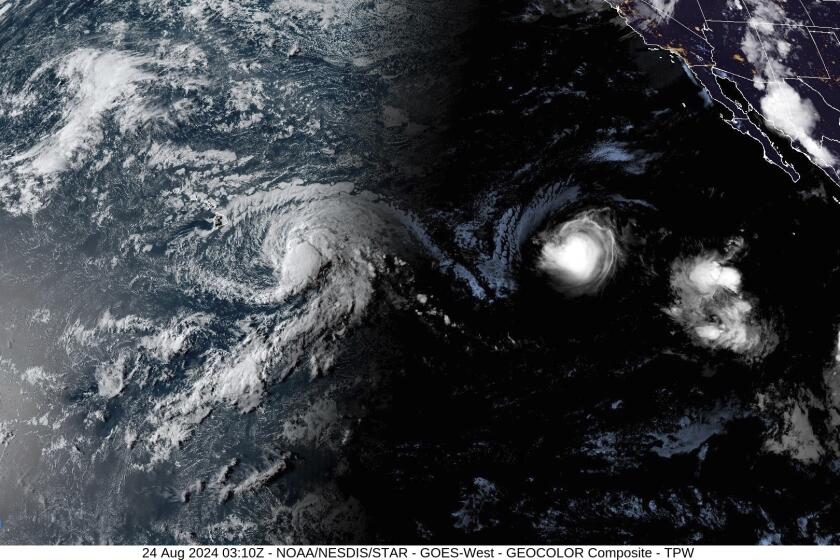Military’s Retirees Due Healthy Bonus
Jerry and Helen Nowicki live a comfortable life in Peoria, Ariz. Jerry, who served 42 years in the Army, likes to water the lawn and plant flowers when his back isn’t acting up or his high blood pressure isn’t getting the best of him.
For those times when it is, he shells out $2,200 a year on medical insurance to supplement his Medicare benefits.
That’s a relatively small fraction of what he and his wife live on these days, about $40,000 annually. But still, paying for medical insurance after all those years of military service rankles him. Which is why, come Oct. 1, when the Pentagon opens enrollment for an entitlement program that for the first time will offer free medical care to military retirees, Nowicki intends to sign up.
“Why should I put out $2,200 of my own pocket when I can get [medical care] for nothing?” Nowicki asked. “I’m just going to stop paying my supplemental [private insurance]. And the majority of military retirees I talk to are going to do the same thing.”
Ten months after Congress, plump with a budget surplus and its eye on elections, overwhelmingly voted to guarantee free medical coverage to 1.5 million aging military retirees, the Pentagon is struggling to implement the most sweeping changes to its health care system in 35 years. The program is proving complicated and costly, and could constrain the Pentagon’s ability to fund other military programs.
The new coverage expands the military’s huge managed health care plan, known as TriCare, to include retirees who served at least 20 years in the military and their spouses. It will cover most medical expenses without co-payments or a premium and includes a substantial prescription drug benefit. Until now, the retirees were dropped from TriCare as soon as they became eligible for Medicare, and their only additional coverage was limited access to a shrinking network of military hospitals and clinics.
The military has set aside $3.9 billion to fund the program in its first year and has estimated its cost at more than $60 billion over 10 years.
But with no one sure how many people will ultimately sign up for the coverage, how much it will get used, and how much health care and pharmaceutical costs will rise in the future, senior Pentagon officials acknowledge that its costs in its first year and down the road are still unknown.
“Making such a substantial commitment to seniors affects other programs, potentially,” said Steve Lillie, director of the Over-65 Division of TriCare. “They’ve just spent a huge piece of the surplus here.”
The new benefits are an overwhelming victory for military retirees, who had been fighting to get them for more than a decade. They argue they were promised lifelong health care by recruiters if they made the military a career.
Many of those injured or disabled in war already get free medical care through a network of veterans hospitals. But many other veterans and career military retirees were dropped from the military’s managed health care plan when they reached age 65.
Until the end of the Cold War and the shrinking of the military, retirees customarily sought and received service at the many hospitals and clinics attached to military bases and installations across the country. When there was no shortage of room and resources, the retirees were welcomed. But since 1985, the Pentagon has closed 37 military hospitals and has shrunk 23 more into clinics. The medical centers began turning the retirees away.
“We’re the happiest people in the world, because we’ve been fighting for this for 10 years,” said Dick Murray, a retired Air Force general who is president of the National Assn. of Uniformed Services. “There are thousands of people who have been turned away from military facilities because we have lost so many doctors that they can’t take them.”
In an office park in Falls Church, Va., the people who run TriCare are grappling with making the benefits work--and figuring out how to pay for them. With its prescription drug benefit that allows retirees to use mail-order and retail pharmacies, paying no more than $150 in an annual deductible, and its lack of premiums and co-payments, the new plan is more generous than medical benefits given to any other group of federal employees.
Since April, when retirees became eligible to enroll in the drug plan, the Pentagon has spent more than $100 million for more than 250,000 prescriptions.
In October, TriCare expects a flood of enrollments in the medical plan, which will pay most of the costs for treatments not covered by Medicare, with no premium. Retirees and their families will be required to pay no more than $3,000 annually for out-of-pocket medical expenses, less than half the current $7,500 per family.
“Very, very few plans equal this now. We expect huge turnover of retirees from their private plans to this one,” Lillie said. “Our expectation is that unless someone has a fully funded Medicare supplement plan, and most don’t, they will switch to TriCare.”
To cope, TriCare is hiring hundreds of new employees, and its directors are meeting frantically with a network of Medicare providers, managed care contractors and retiree groups across the country. And Pentagon analysts are working to get a handle on varying cost projections.
At the current rate of medical inflation, the program costs could rise to $7 billion a year within five years, according to Pentagon estimates.
“We’re trying to avoid a real morass of transition and transition costs,” Lillie said. “It’s a little daunting because of the uncertainties. How soon are people going to drop the other supplementals they have? How soon are they going to switch to TriCare? What will be the effect on their health care use of having all their medical costs paid? So there are a lot of unknowns.”
With government analysts expected this month to predict a dwindling budget surplus, and with the Pentagon proposing a 57% increase in funding for its research on high-tech missile defense systems, the new medical care program is likely to put a strain on other Pentagon spending.
“This really is a must-pay bill and will be for decades, and obviously it makes it more difficult for other military programs to get paid for,” said Steve Kosiak, a senior analyst at the Center for Budgetary Assessments, a nonpartisan defense budget think tank.
“Now the tax cut and the sluggish economy have all of a sudden made the prospects of a major increase in defense look a lot less promising than they were before the election. These benefits suddenly look a lot less affordable than they did even a few months ago.”
Affordable or not, the Pentagon is obligated to come up with the money. And that, said Rep. Stephen E. Buyer (R-Ind.), who led the push for the entitlement, is a good thing.
“The Pentagon for years had been, in its decision-making process, really putting military retiree health care last,” Buyer said. “Now, because this is a mandatory spending program, the funding will be there. It has to be there.”
That is good news for people like Nowicki.
“It takes a drain off my mind that I won’t have to worry about these costs as I get older,” he said. “And if I go to the happy hunting ground tomorrow, at least I won’t have to worry about my wife. Someday she’ll get sick. And I want her taken care of.”
More to Read
Sign up for Essential California
The most important California stories and recommendations in your inbox every morning.
You may occasionally receive promotional content from the Los Angeles Times.






